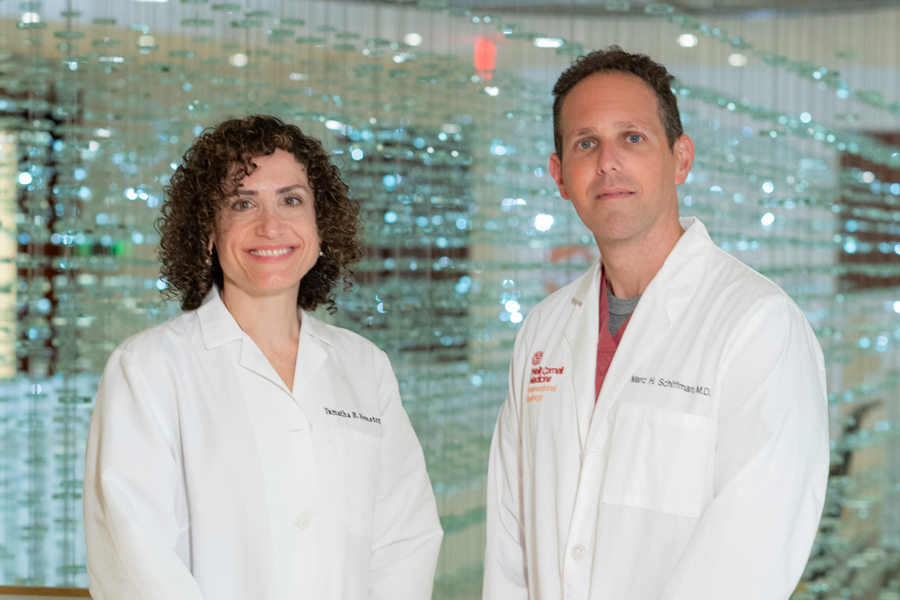
VoiceLove LLC, a startup founded by two Weill Cornell Medicine physicians, was awarded a $3 million fast-track Phase 1-Phase 2 grant by the National Institute on Aging of the National Institutes of Health to further develop and test in clinical trial a prototype app designed to help critically ill patients in hospital intensive care units connect with their families.
VoiceLove, designed in 2020 during New York’s first COVID-19 wave, turns a cell phone into a walkie-talkie that’s compliant with the federal patient privacy law known as HIPAA. The app allows patients and their loved ones, regardless of the language they speak, to send and receive voice messages at the touch of a button without additional burden on the nursing staff.
The goal, according to company founders Dr. Tamatha Fenster, assistant professor of clinical obstetrics and gynecology, and Dr. Marc Schiffman, assistant professor of clinical radiology, both from Weill Cornell Medicine, is to increase family engagement as a way to reduce a condition called ICU delirium. The condition is a devastating complication of illness, acute trauma and surgery often resulting in prolonged mechanical ventilation, longer lengths of stay and long-term disability. Family engagement has been proven to be a key intervention, but family visits were impacted significantly by the COVID-19 pandemic. Other methods enabling patient-family connection require nursing staff to hold phones at the patient bedside and are often unreliable.
“Delirium costs U.S. hospitals tens of millions of dollars each year from prolonged ICU admissions, which is the most expensive care in the hospital. It also causes more reintubations, more falls, more deaths in the hospital, and prolonged cognitive decline. This is true for all ICU patients regardless of age,” Dr. Schiffman said. “Family and friends can help patients get better. However, the level of family engagement needed far exceeds what we can provide for medicine today.”
"A loving voice plays a fundamental role in the healing process,” Dr. Fenster said.
Drs. Fenster and Schiffman worked closely with the team at Enterprise Innovation for licensing of the technology, customer discovery and startup formation. Assisted by a business development professional, the two doctors turned an initial idea based on a 3G walkie-talkie into a downloadable smart phone application. VoiceLove was founded six months after the disclosure of this new technology to meet the urgent need.
The NIH grant—awarded in two phases—will help VoiceLove to further develop the app. The first phase, set for the next year, will fund refinement of the app prototype for ICU patients, families and providers. The second phase, encompassing the grant’s second and third years, will support a randomized clinical trial at Vanderbilt University comparing VoiceLove against other family engagement methods to evaluate the app’s effect on optimizing patient-family-provider communication, engagement and reducing ICU delirium prevalence.
Dr. Fenster hopes that VoiceLove can take some strains off the medical staff and help avoid burnout. She said, “This is unique. If the trial proves VoiceLove is effective, it could serve as an option for hospitals and delirium patients.”
Many Weill Cornell Medicine physicians and scientists maintain relationships and collaborate with external organizations to foster scientific innovation and provide expert guidance. The institution makes these disclosures public to ensure transparency. For this information, see profile for Dr. Tamatha Fenster and Dr. Marc Schiffman.

